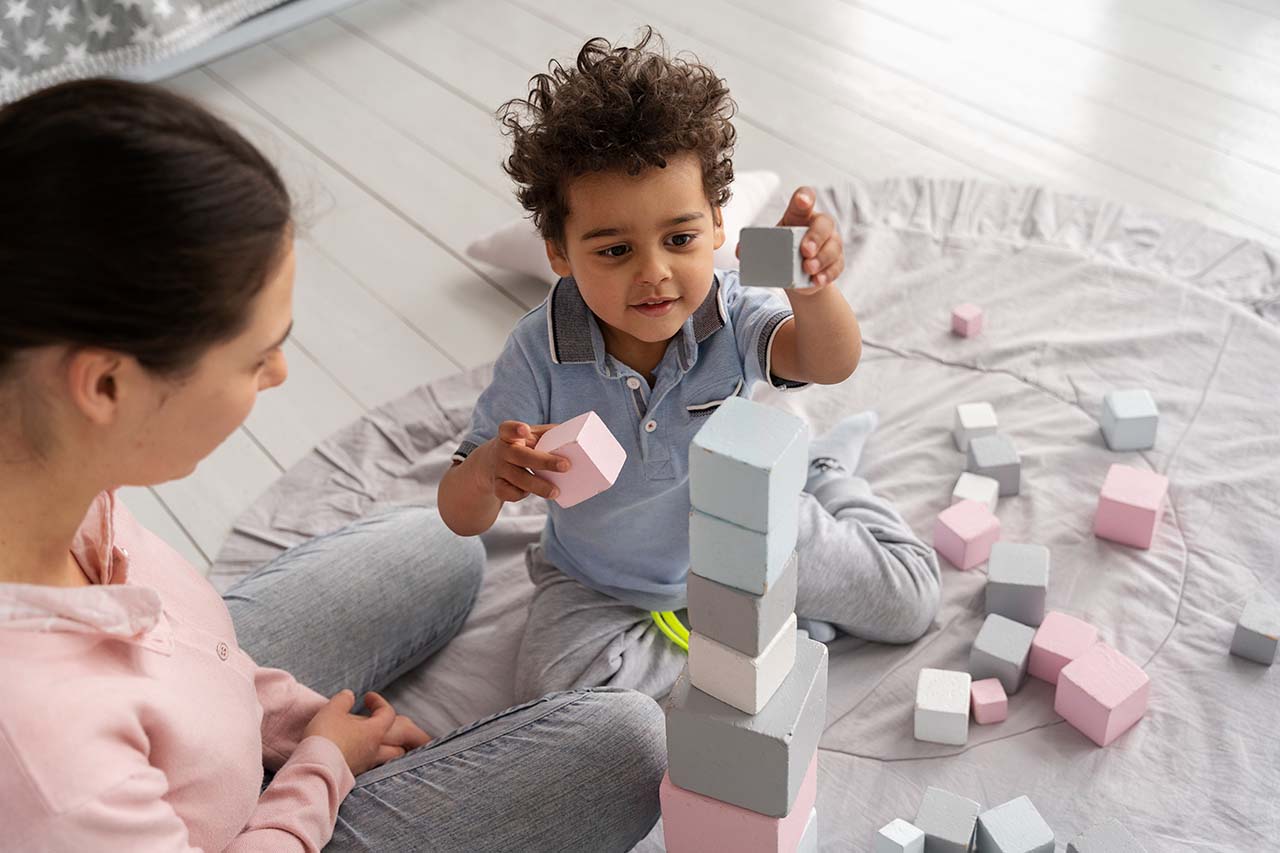
Children often face emotional and behavioral challenges they may not yet have the words to express.
Play therapy is a specialized approach designed to help children communicate their feelings, work through challenges, and build coping skills—all through the power of play. For families in South Florida, finding a trusted play therapy provider nearby can make a significant difference in your child’s emotional well-being and development.
What is Play Therapy?
Play therapy is a therapeutic approach that uses play as a medium for communication and healing. It allows children to express themselves in a safe, non-judgmental environment, using toys, games, and creative activities as tools to:
- Explore emotions.
- Resolve conflicts.
- Build problem-solving skills.
- Process traumatic experiences.
Through play, therapists can gain insight into a child’s thoughts and feelings, helping them address issues that may be affecting their behavior or mental health.
Who Can Benefit from Play Therapy?
Play therapy is effective for children as young as three years old and can be beneficial for:
- Anxiety and Stress: Helping children manage fears, worries, or transitions such as moving or starting a new school.
- Behavioral Issues: Addressing defiance, aggression, or difficulty following rules.
- Trauma Recovery: Supporting children who have experienced loss, abuse, or other traumatic events.
- Social Skills Development: Assisting children in building friendships and improving communication.
- Family Changes: Helping children cope with divorce, separation, or blended family dynamics.
The Benefits of Play Therapy
Play therapy provides children with:
- A Safe Space: A welcoming environment where they can express themselves without fear of judgment.
- Improved Emotional Regulation: Tools and strategies to manage their emotions more effectively.
- Enhanced Problem-Solving Skills: Activities that encourage creative thinking and resilience.
- Stronger Relationships: Improved communication and understanding with family members.
- Increased Self-Esteem: A sense of accomplishment and confidence as they work through challenges.
What to Expect in a Play Therapy Session
During a play therapy session, the therapist will observe and interact with your child as they play. Sessions may include activities such as:
- Role-Playing: Using dolls, action figures, or costumes to act out scenarios.
- Art and Drawing: Encouraging children to express themselves through creative projects.
- Sand Tray Therapy: Allowing children to create scenes or stories using miniature figures and a sand tray.
- Board Games or Puzzles: Promoting cooperation, patience, and problem-solving.
The play therapist’s role is to guide the session, helping your child explore their feelings and develop healthy coping mechanisms.
Finding Play Therapy Near You in South Florida
The Registered Play Therapist (RPT) credential ensures the therapist you are hiring has extensive training, supervised experience, and expertise in the area of play therapy. Unlike counselors who merely use toys in their sessions with children, Registered Play Therapists (RPTs) possess in-depth knowledge of theory, technique, and ethics pertaining to working with children. To find one in your area, you can look on the Association for Play Therapy website (a4pt.org). You should schedule a consultation to discuss your child’s needs and determine if the therapist is a good fit.
How Robin Horvitz Counseling Can Help
At Robin Horvitz Counseling, we offer play therapy by a trained Registered Play Therapist (RPT) to support children and their families. Our approach focuses on:
- Personalized Care: Each session is tailored to your child’s unique needs and goals.
- Empathy and Understanding: We create a nurturing environment where children feel comfortable expressing themselves.
- Collaborative Support: We work closely with parents to ensure consistent progress at home and in therapy.
Supporting Your Child Outside of Therapy
While play therapy is a powerful tool, parents play a vital role in their child’s growth and healing. Here are some tips to complement therapy sessions:
- Encourage Open Communication: Let your child know they can share their thoughts and feelings with you.
- Incorporate Play at Home: Spend quality time engaging in activities your child enjoys.
- Practice Patience: Understand that progress takes time and celebrate small victories.
- Stay Involved: Regularly communicate with your child’s therapist to stay informed about their progress.
Final Thoughts
Play therapy offers a unique and effective way to help children navigate life’s challenges while fostering emotional growth and resilience. For families in South Florida, finding a trusted play therapy provider can be a transformative step toward a happier and healthier future. At Robin Horvitz Counseling, we are committed to supporting your child’s well-being through compassionate, expert care. Contact us today to learn more about our play therapy services and how we can help your family thrive.






